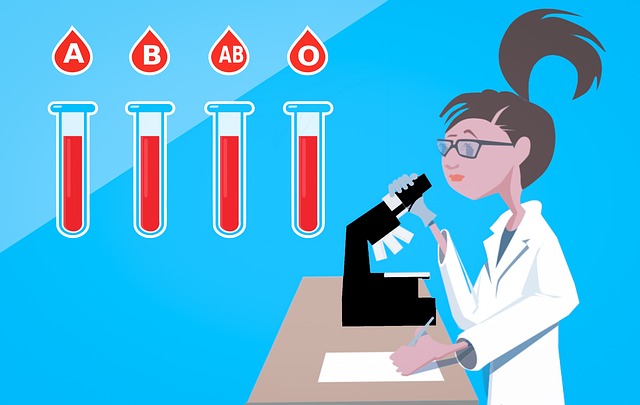The UK Advanced Liver Blood Test is a comprehensive assessment tool for healthcare professionals, measuring key liver indicators like ALT, AST, bilirubin, albumin, and PT. It detects inflammation, damage, or stress in the liver, aids in diagnosing conditions such as hepatitis, cirrhosis, or cancer, monitors treatment effectiveness, and assesses liver reserve capacity, enabling tailored patient care.
In the realm of medical diagnostics, the UK Advanced Liver Blood Test stands as a game-changer for assessing liver health. This comprehensive test goes beyond basic liver function markers, offering insights into various metabolic processes crucial for clinical decision-making. By delving into the key metrics measured—such as enzymes, bilirubin, and albumin—medical professionals can interpret results with significant clinical implications, enabling effective management of liver-related conditions.
- Understanding the UK Advanced Liver Blood Test
- Key Metrics Measured in the Liver Function Test
- Interpretation and Clinical Significance of Results
Understanding the UK Advanced Liver Blood Test
The UK Advanced Liver Blood Test is a comprehensive assessment tool for medical professionals, offering insights into liver health beyond basic function. This test goes beyond traditional liver function markers by examining a range of enzymes, proteins, and bilirubin levels, providing a detailed picture of hepatic (liver) activity and potential abnormalities. By identifying subtle changes that primary tests might miss, it becomes an invaluable resource for early detection and management of liver-related conditions.
Healthcare providers can use this advanced test to detect inflammation, damage, or stress in the liver, helping to diagnose conditions such as hepatitis, cirrhosis, or even cancer. It also monitors the effectiveness of treatments and assesses liver reserve capacity. With its ability to provide a more nuanced view of liver health, the UK Advanced Liver Blood Test plays a crucial role in ensuring accurate diagnosis and tailored patient care.
Key Metrics Measured in the Liver Function Test
A UK advanced liver blood test measures several key metrics that offer a comprehensive view of liver health. These include enzymes like alanine aminotransferase (ALT) and aspartate aminotransferase (AST), which are indicators of liver damage or inflammation. Elevations in these enzymes can suggest issues such as hepatitis, cirrhosis, or even alcoholic liver disease.
Additionally, the test assesses bilirubin levels, a breakdown product of red blood cells that, when elevated, can point to obstructions in the bile ducts or hemolytic disorders. Albumin and total protein levels are also crucial; low readings may indicate malnutrition, chronic illness, or impaired liver function. Prothrombin time (PT) is another metric, measuring the liver’s role in clotting; prolonged PT can signal liver damage or thinning of the blood due to reduced production of clotting factors.
Interpretation and Clinical Significance of Results
The interpretation of a UK Advanced Liver Blood Test goes beyond simple numbers on a lab report. Each result, from enzymes like ALT and AST to bilirubin and albumin, holds clinical significance reflecting the overall health of the liver. Elevated levels of certain markers can signal inflammation, damage, or disease processes within the liver, ranging from fatty liver to more serious conditions like cirrhosis or hepatitis. Conversely, low levels may indicate issues with protein synthesis or liver congestion. Understanding these nuances is crucial for medical professionals to accurately diagnose and manage patients’ liver health effectively.
The UK Advanced Liver Blood Test is a comprehensive tool that enables medical professionals to thoroughly assess liver health. By measuring key metrics such as enzymes, proteins, and bilirubin levels, this test provides valuable insights into the liver’s functional status. Accurate interpretation of results is crucial for timely diagnosis and effective management of liver conditions, ensuring optimal patient care.
